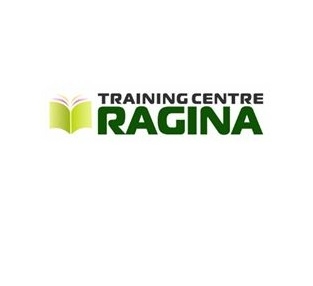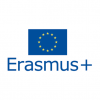Innovative 'thinking tools" in primary and pre-primary education
il y a 7 ans
Education, centre de formation ou école
Recherche partenariat
Recherche partenaire principal
Most of the students in the existing educational system lack personal responsibility. Instead, it is usually transferred to parents at home and teachers at school. The lack of personal responsibility leads to lack of motivation for learning.
On the other hand, teachers must teach the required material and ensure that all students understand and create links between what is taught and situations in real life. Since children in one class have different emotional and intellectual levels and time in class is limited, very few of them gain a true understanding. Most students have to memorize large amounts of information that they do not usually understand. Figuratively speaking, students receive "knowledge bricks" without having the tools to build their own "house of knowledge".
When students are not motivated for high results in their education, have no good understanding of the study material and feel they ought to memorize facts without actually understanding them, it is logical to find school boring which reduces their motivation even more.
Teachers also find this situation demotivating because during their work they encounter uninterested young people who are only waiting for the end of the class.
Part of the current problem is the insufficient personal responsibility and motivation to participate in the learning process, as well as the lack of understanding. The current system is mainly focused on memorizing instead of students' understanding. Teachers are discontent and demotivated by the lack of sufficient tools to increase students’ motivation and performance.
This results to the following:
- The focus of education is shifted from understanding to memorization. Students do not develop important skills such as the ability to think, key skills to prepare for real life and, above all, the ability to learn about lifelong learning;
- The students’ ability for causal and critical thinking is not ; Most of them do not have the skills to analyze and evaluate information to assess their achievements;
- The education system does not provide skills for conflict resolution. Every conflict can be resolved so that each party is fully satisfied. Students do not receive this knowledge, and therefore accept conflicts as a norm and tend to seek whom to blame instead of finding solutions;
- The education system creates individualists. There is not enough creativity, teamwork, communication and interaction which are necessary skills for the dynamic time of constant change we live in;
- The ability for multi-layered and non-standard thinking is not developed;
- Most students have no skills to cope with the rapid changes in the new age and the pace of the new technological and informational solutions;
- Most students cannot practice what they are learning;
- Most students do not take responsibility for their actions and their results;
- Time absenteeism increases for unwarranted reasons, student bullying grows, children's negative emotions increase, and each year there is an increase in school dropouts.
Later all students become part of the society - entrepreneurs working in the business or entering the administration - municipal and state. They become part of the education, health and other government systems. The results of the model of education described here are the main reasons for inefficiency after leaving the educational environment. If the lifelong learning skills are not taught in the early childhood, it would be hard for the individual to apply them in life afterwards.
Can we overcome the problems described and prepare students for the best achievements now and in the future?
A qualitative leap in education is only possible if quality tools and trainings of teachers are put in place so that students will take personal responsibility for their training, motivation and appropriate "tools" that develop logical and critical thinking.
The new system of trainings and tools for trainers that will be created with this project is inspired by several independent models that work with the same or other target groups:
-Self-regulated learning - means that students (with the support of teachers) learn to take responsibility thus increasing and maintaining their motivation, thinking and feeling levels in order to achieve their learning goals.
-Theory of constraints (TOC) for education contains a set of tools and processes that enable students to create step-by-step a strategic plan for their goals, analyze causality, resolve conflicts, and analyze inconsistencies between plans, expected and actual results.
-NORLO system – encompasses a new vision to education and gives the opportunity to for every student to build up his personal creative and innovative solutions ensuring his exclusivity in the market environment.
This era is faced with unprecedented and unresolved issues which can be solved using:
- Acquisition, creation and realization of knowledge throughout the life of individuals and organizations;
- Intemational innovation as a condition for growth, development, competitiveness and corporate longevity;
- Non-alternate transformation of economic subjects into "learning organizations";
- The dominant role of dynamic entities and organizations as "knowledge corporations", regardless of their sphere, scale and potential;
- A new personal and organizational culture;
- Tools for effective utilization of human, structural and consumer capital;
Intellectual products, services and solutions, taking into account two motives:
- Intellectual property as the engine of economic development.
- Capitalisation of Intellectual potential and Intellectual Property, i. e the capitalization of intangible fixed assets.
A large volume of books, teaching aids and methodical tools have been developed for the training of students at Rousse University using the NORLO system.
The NORLO system for education delivers solutions in line with the goals of the University of the Future. For the purpose of the project, parts of the system will be adapted to be applicable to pre-primary and primary school education to become a vision for creative and innovative learning process which follows the basic idea of encouraging each individual to build his unique personal creative and innovative "assemblage", giving him distinction and exclusivity form others. This will contribute to the current system of trainings and lecturers' tools both for creativity trainings and for developing lifelong learning skills.
Expected results of the project:
- Innovative teacher training that will be applicable for universities, VET organizations and other educational organizations that are involved in pedagogical staff qualification will be developed;
-Six different “thinking tools” for teachers inspired from different working models from around the world will be developed and applied in pre-primary and primary school education;
- These tools will be digitized and published on specially developed online platform for the project and will be translated into 3 languages (English, German and French) to make them more accessible throughout Europe;
- 20 teachers will increase their qualification with the innovative training;
- 20 teachers will increase their skills to use digital educational ;
Éducation et formation
Erasmus+
Apprentissage tout au long de la vie
Coopération transnationale
Accédez au prémier réseau pour la cooperation européenne
Se connecter
ou
Créer un compte
Pour accéder à toutes les informations disponibles
Appels recommandés pour cette idée
Appels proposés par les utilisateurs qui pourraient coller avec cette idée.
Recommander un appel







S'il vous plaît Se connecter pour voir cette section